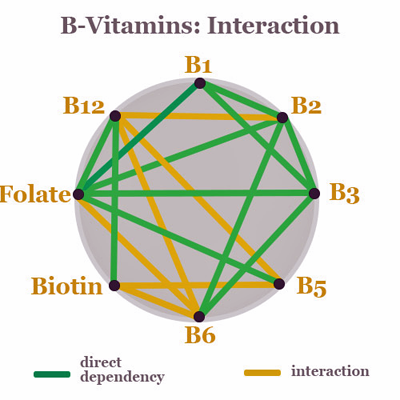B12
-
Does anyone know why when I take b12 (hydroxycobalamin) I feel slightly strange. It makes me feel good and strange at the same time.
Somehow it gives me a sharper jaw and makes my face sit in a more natural position to where I naturally mew however I can’t concentrate quite as well as I’d like and noticed some hair thinning and possible skin issues.
I’ve heard people talk about overmethylation. Is this something that can occur with hydroxycobalamin?
I had similar effects with folic acid but that made me even more mentally dull which I put down to it depleting b12 but I’m not so sure anymore. Also pantothenic acid thinned my hair. The only b that seemed to ever thicken it was b3 Niacinamide which also would give me bad blood sugar reactions if I wasn’t meticulous about dosing and timing.
Some good resources would be helpful. I suspected I was deficient only because I got positive reactions when supplementing like my nail moons coming back on my thumbs and those mentioned above as well as slight improvements in other areas. Thank you
-
Don't neglect the P5P and perhaps give choline a try. Either citicoline or the common bitartrate three times a day?
-
Great thanks. Been meaning to try b6. Really mapping out all the Bs and their effects on me at this point
-
@Jakeandpace said in B12:
Been meaning to try b6.
Mind the kind. PLP OK; no PNP.
And if you overload, you'll get problems with the brain (GABA short).
I did it 5 days on 7 for 3 weeks. Stop one week, Then again.Pyridoxine PLP as pain inhibitor in peripheral neuropathy
Efficacy of Vitamin B1, B6, and B12 in Peripheral Neuropathy
https://mirzoune-ciboulette.forumactif.org/t2041-english-corner-b6-leads-to-decrease-of-cytokines-in-pn#29659
People taking a UL dose of 25 mg on a usual way for peripheral neuropathy could have problem or not, depending on the fact that B6 has a half-life of up to 30 days. So repetitive small doses taken over a period of months can accumulate, resulting in high blood concentrations. Too much of a good thing is bad (U-shaped curve benefits with pyridoxine). Evidence from the literature [1] has shown that chronic intake of high levels of vitamin B6, higher than the recommended dosage, leads to severe and progressive sensory neuropathy accompanied by ataxia or loss of control of bodily movements.
Note's Editor: "Evidence from literature" => Not so evident at the end of this post.
When people taking medications for treating health problems that increased catabolism of pyridoxine (like epilepsy or chronic lung diseases), they should adapt their treatment in agreement with their therapist. Taking UL B6 is going to change the posology needed.
Apart from effectively reducing homocysteine levels, when targeting the right dose of B6 (in association with folate, vitamin B12, not necessarily every day), we should take into account a right window for the degradation of the pyridoxal metabolites to 4-pyridoxic acid. Otherwise, there will be a return of the crank with UL of B6. Expressed in a different way, we need to take breaks to optimize profits. More details will be given on the way to adapt the levels when taking high doses of B6 and the kind of B6 you could manage with.NB: 30 to 60 % people are deficient in the methylation process. So when taking simple forms of cobalamin (B12) or folic acid, it doesn't function. Useless.
See interaction on the graph:

See too:
English Corner – Vit B6: How much is too much? -
@LucH @Jakeandpace
That graph, whilst displaying B12+Folate+P5P as the most crucial, does not show B4.
B4 is choline. It's really unfortunate that B4 has been dropped from the "canonical" B vitamins.
In my view all good vitamin b complexes should build up on no less than 150-200mg of choline per dose.
Without choline, supplementation of B vitamins eventually leads to liver damage (Biskind).
It's also super important for the nerves and brain and all organelles as phospatidylcholine in the membranes. Which is a vital building block when stimulating cellular replication with B12 etc.
Choline can be converted to TMG=betaine for methylation purposes. But that's a one-way-pathway, i.e. supplying betaine (or methyl-B12) only spares some choline going into that route. Which is of limited use and perhaps even conflictive if increased methylation results in a metabolic boost (cave: or unfavorable epigenetic silencing) with which overall choline intakes are too low to keep up. -
The synthetic stuff is with downsides. Just eat whole foods. Medium rare (at least) beef organs. Heat reduces B12 content significantly, this is very often neglected.